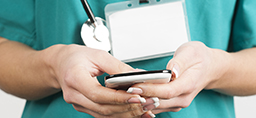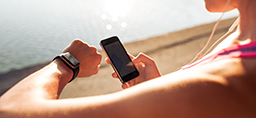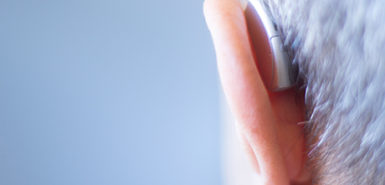
It was another typically busy day.
In between testing patients, Michael Lawrence, PhD, ABPP-CN, a clinical neuropsychologist with Spectrum Health Medical Group, found himself answering instant messages and emails, grabbing a quick lunch, calling AT&T about his cell phone bill, racing to Blodgett Hospital for a meeting, and reading an article a certain Health Beat reporter had sent him for an interview.
If that sounds all-too familiar to you, you’re not alone. But if you think you’re multitasking, what you’re really doing is kidding yourself, Dr. Lawrence said.
“We all have to do it to some extent,” he said. “But we know multitasking is a misnomer. We have to be aware that you’re not doing two things at work, you’re switching back and forth. If we have three or four or five things, our performance suffers.
“The problem is, we don’t know how to deal with technology. We’re bombarded by things.”
Our cell phone addictions are doing more than stifling our real-world social lives: they’re stifling our creativity, too, Dr. Lawrence said.
“We used to think that different parts of the brain were responsible for controlling different abilities, but what we’ve learned with recent advances in neuroscience is that actually your brain is networked together,” he said. “The Default Mode Network, the DMN, actually encompasses the prefrontal cortex and the limbic system. That’s the part of the brain that turns on when you’re at a resting state. And studies have shown that creativity is increased when you do nothing at all first.
There’s an app for that
New app helps track your cell phone addiction.
Are you addicted to your cell phone? If you’re like a growing number of Americans, the answer is probably yes – and it’s likely worse than you thought.
Enter the new app called Moment, which can track just how often you check your messages, emails, Facebook or anything else.
You can even set daily limits on yourself and force yourself off your device when you’re over your limit.
“It’s the last thing you look at before you go to bed, and the first thing you wake up to,” Dr. Lawrence said. “That’s why this Moment app is so interesting. I don’t think people realize how addicted they are to their phones.”
“When you’re doing too much at once, this area of the brain is burning too much energy, and your capacity to do any one thing suffers.”
This flies in the face of the common belief that things such as music can help increase focus and productivity, Dr. Lawrence said, but that doesn’t mean people can’t juggle tasks at all.
“I think you can do two things at once, but the problem is, you don’t do any one thing as well,” he explained. “The research says the quieter the environment, the more sterile, the better you do. People say they focus better with music, but your brain has to turn on to process music, and if it’s expending energy to process music, that’s energy it’s not using on whatever else you’re doing.”
The multitasking myth isn’t age-specific, either.
“They talk about kids with video games, but I think adults are even worse,” he said. “I went to a meeting the other day and everyone was on their cell phone. They say technology is making everybody ADD. It makes our lives better in some way, but at what cost? There has to be some moderation.”
Dr. Lawrence said he has a simple way to fight the anxiety of overstimulation.
“We all have that feeling, when we’re being pulled in a million different directions,” he said. “When I do it, I realize it and get anxious. What’s the first thing I do? I turn off everything–my cell phone and email–and create a checklist of the things I need to do. That helps me focus and prioritize what I need to do.”
The bottom line, says Dr. Lawrence, “We have to learn to adapt, because technology isn’t going away.”
 /a>
/a>
 /a>
/a>
 /a>
/a>